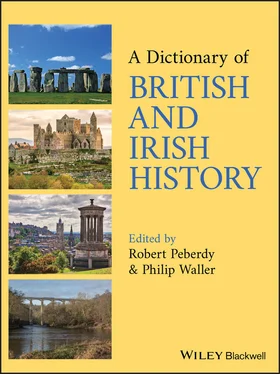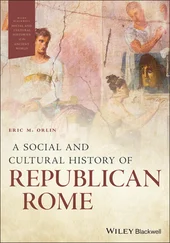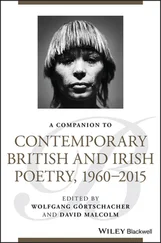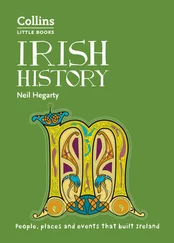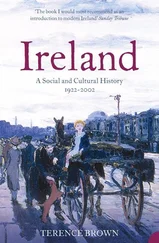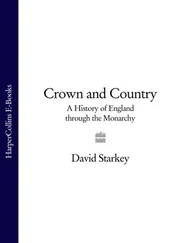The bubonic and pneumonic plague known (from the 16th century) as the ‘Black Death’ affected England in 1348–9. Originating in Asia, it swept through Europe from 1347 and entered England in June 1348, probably at Melcombe Regis (Dorset), coming from CALAIS with imported cloth bales. Transmitted by rats and fleas, the plague spread through southern counties and into the Midlands in 1348 and early 1349. After subsiding, it revived in March 1349 and advanced through northern England. All communities and social groups suffered, though to varying extents. Probably over 2 million people died out of 5 million. A second outbreak in 1361–2 killed about 1 million.
The population fall had far‐reaching social and economic consequences. Labour shortages caused wage rises and internal migration. Lords could not enforce LABOUR SERVICES, and eventually leased their directly managed lands (‘demesnes’) to tenants ( see MANOR). Statutes to protect lords’ interests caused unrest ( see LABOURERS, ORDINANCE AND STATUTE OF), culminating in the PEASANTS’ REVOLT. See also PLAGUE, ENGLAND.
BLACK DEATH, IMPACT ON IRELANDThe plague reportedly arrived via the east‐coast port of Howth (Co. Dublin) in July 1348. It spread quickly to DUBLIN and Drogheda and across the country. According to the Franciscan friar John Clyn, Dublin and other Anglo‐Irish towns became almost uninhabited. Archbishop Richard FITZRALPH claimed that two‐thirds of the Anglo‐Irish population were killed, but that Gaelic Irish were less affected. The plague hastened the shrinkage of the English colony as inhabitants moved to towns or England. See also PLAGUE, IRELAND; IRELAND, ENGLISH COLONY IN, 13TH–15TH CENTURIES. BLACK DEATH, IMPACT ON SCOTLAND
The plague arrived from England in autumn 1349 and spread through 1350. Although it made the most savage cut of population in Scottish history, chroniclers' claims that a third perished may imply lower mortality than elsewhere in Britain. Few MAGNATES died. As elsewhere, plague returned several times later in the 14th century.
The long‐term consequence was to reduce the population by over a half, creating a new relationship between population and resources. Its effects included shortage of labour, more livestock farming, falls in rents, larger landholdings, and leasing of lords' demesnes ( see MANOR). Population recovery, however, was probably under way by the mid 15th century, significantly earlier than in England. See also PLAGUE, SCOTLAND; POPULATION, SCOTLAND.
BLACK DEATH, IMPACT ON WALES
The plague entered SE Wales by March 1349, reached CARMARTHEN, SW Wales, by sea by late March and swept through the Anglo‐Welsh border country to NE Wales by June. Dispersal continued until the autumn. Perhaps a third of the population was killed.
Afterwards, migration to find good‐quality vacant land accelerated the decline of native tenures ( see TENURES, WALES). The 1349 and later plagues (e.g., 1361–2, 1369) encouraged contraction of arable farming and expansion of sheep farming. See also PLAGUE, WALES; AGRICULTURE, WALES BEFORE 18TH CENTURY.
BLACK DINNERsee JAMES II BLACK HOLE OF CALCUTTAName used for a notorious incident in INDIA in 1756. After the nawab (ruler) of Bengal, Siraj‐ud‐Daulah, seized control of CALCUTTA (a British headquarters in NE India) on 20 June, captives were imprisoned in a small cell (the ‘Black Hole’). By the following morning, most had died by suffocation or heat exhaustion. The incident was reported in Great Britain as evidence of Indian brutality. The numbers involved are uncertain: 60–200 were incarcerated, 40–140 died. See also CLIVE, ROBERT. BLACK PRINCEsee EDWARD THE BLACK PRINCE BLACKSTONE, WILLIAM(b. 10 July 1723 at London, England; d. 14 Feb. 1780 at London, aged 56). An unsuccessful barrister, Blackstone instead lectured on English law at OXFORD University from 1753 (also Vinerian professor of law 1758–66). He was elected an MP in 1761 and became a judge in 1770 (also knighted). Blackstone is famous for his Commentaries on the Laws of England (4 volumes, 1765–9), an elegant, systematic exposition aimed at laymen which was influential in England and N America for over a century. BLACK WATCHA distinguished Scottish regiment in the British ARMY, which was authorized by King GEORGE II in 1739; it was constituted from six Highland Companies of Foot (formed from 1725) and four new companies. The original companies represented attempts to secure the support of loyal HIGHLAND clans following the JACOBITE REBELLION of 1715. During the JACOBITE REBELLION of 1745, the regiment was stationed in S England for fear of unreliability. Its name, originally a nickname, referred to the dark tartan worn by soldiers and their role of watching the Highlands. In 2006 the regiment was amalgamated with other units as the Royal Regiment of Scotland. BLACK WEDNESDAYNickname for Wednesday 16 Sept. 1992 when the British Conservative government was compelled to withdraw sterling from the European Economic Community’s EXCHANGE RATE MECHANISM (ERM). During the day, speculators’ currency sales forced the government to raise the base interest rate from 10% to 12%, and declare a rise to 15%, to protect sterling’s ERM value. These actions failed; at 7.30 pm the chancellor of the Exchequer, Norman Lamont, announced withdrawal. The humiliation damaged the Conservatives’ reputation for financial management and the premiership of John MAJOR. See also EUROPEAN ECONOMIC COMMUNITY/EUROPEAN UNION, IMPACT ON BRITISH POLITICS. BLAIR, TONY
(b. 6 May 1953 at Edinburgh, Scotland). Leader of the LABOUR PARTY 1994–2007; British prime minister 1997–2007.
A barrister and MP (1983–2007), Blair became Party leader with acquiescence from rival Gordon BROWN ( see GRANITA ACCORD). With Alastair CAMPBELL and Peter MANDELSON, he ‘modernized’ Labour as NEW LABOUR with centrist policies (e.g., abandoning NATIONALIZATION, 1995) and won an unprecedented three general elections for Labour (1997, 2001, 2005). Brown, as chancellor of the Exchequer, received extensive authority in domestic policy.
Blair implemented DEVOLUTION in Scotland and Wales (1997–9), achieved a peace settlement for Northern Ireland (1998; see BELFAST AGREEMENT), reinstated city‐wide government in LONDON (1999–2000), and removed most hereditary peers from the House of Lords (1999). He pursued an interventionist foreign policy ( see KOSOVO WAR; SIERRA LEONE). His government sought ‘modernization’ of public services and encouraged IMMIGRATION.
In Blair’s second term, he controversially committed military support to US‐led campaigns in AFGHANISTAN (from 2001) and Iraq (from 2003). Domestic developments included legal civil partnerships for same‐sex couples (2004).
Involvement in Iraq damaged Blair’s popularity and authority. On 7 Sept. 2006, under pressure from Brown’s supporters, he announced a resignation plan. He was succeeded by Brown in June 2007.
BLENKINSOP, JOHN(b. 1783 at Felling, Co. Durham, England; d. 22 Jan. 1831 at Leeds, aged 47). A supervisor of coal mines, Blenkinsop experimented with steam engines. In 1812–13 he built four two‐cylinder railway locomotives, which hauled coal waggons along tooth‐racked cast‐iron rails from Middleton colliery to LEEDS (to loading staithes on the R. Aire). It was the world’s first practical, commercial steam‐powered railway system. The locomotives operated until 1835. Blenkinsop’s work influenced George STEPHENSON. See also RAILWAYS, ENGLAND. BLIGH, WILLIAM
(b. 9 Sept. 1754 at Plymouth, Devon, England; d. 7 Dec. 1817 at London, England, aged 63). A career sailor in the British NAVY, Bligh suffered a mutiny (cause unknown) on 28 April 1789 as captain of HMS Bounty . He and 18 others were put adrift in a longboat in the Pacific. They eventually reached Timor (14 June). Bligh was afterwards exonerated of blame for the mutiny.
Читать дальше
